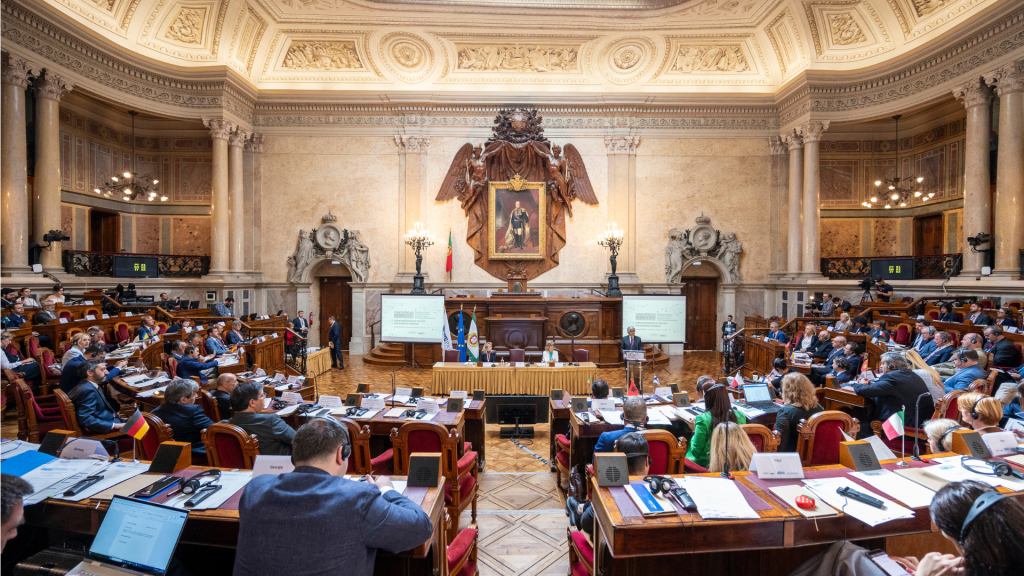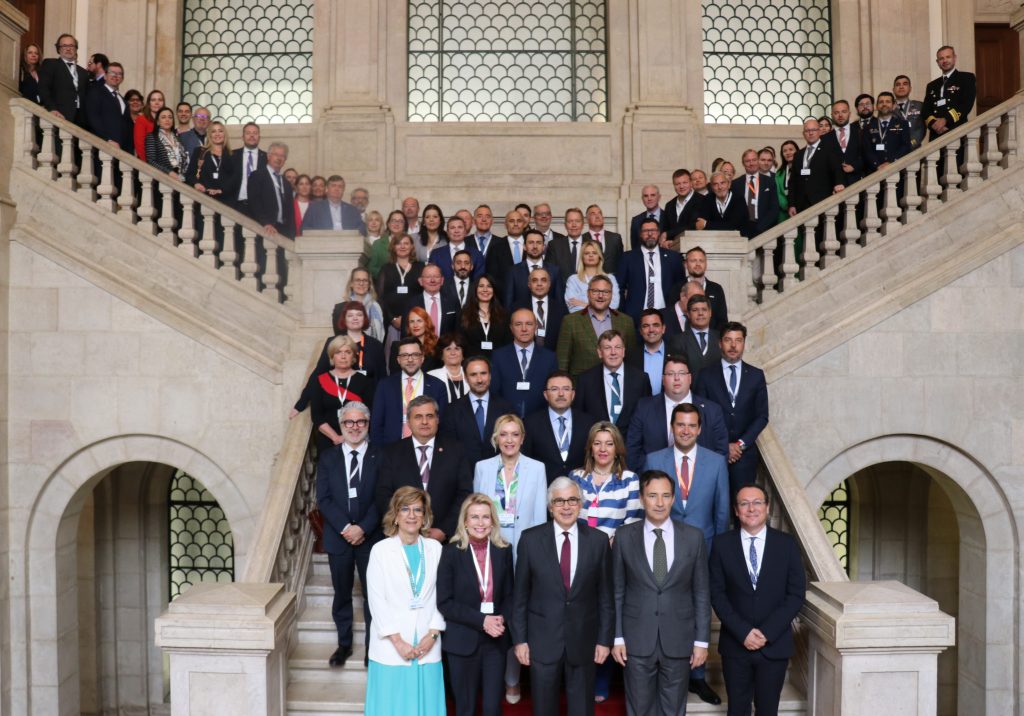
PAM and CGS attended the Lisbon Conference of the OSCE Parliamentary Assembly on Security in the Age of Artificial Intelligence on 20 May 2024 in Lisbon, Portugal. The conference brought together around 170 participants, including 70 parliamentarians from 27 OSCE participating States and experts from academia and international bodies.
Artificial Intelligence (AI) is a double-edged sword. It is revolutionizing contemporary societies with its unparalleled opportunities and significant challenges. While it promises increased efficiency and innovative solutions to complex problems, it raises ethical concerns and disrupts traditional employment structures. In security, nations are leveraging AI to fortify democratic processes and governance. However, the proliferation of AI-driven threats, such as cyberattacks and disinformation campaigns, underscores the critical need for global cooperation and comprehensive policies.
Through international collaboration, policymakers can craft regulations that ensure AI’s benefits while safeguarding ethical principles and democratic values. The Parliamentary Conference on Security in the Age of Artificial Intelligence seeks to convene parliamentary representatives, experts, and key stakeholders to facilitate informed discussions, knowledge exchange, and collaborative efforts.
José Pedro Aguiar-Branco, President of the Assembleia da República of Portugal; Pia Kauma, President of the OSCE Parliamentary Assembly; Helga Maria Schmid, OSCE Secretary General; and Paula Cardoso, Head of the Portuguese Delegation to the OSCE PA, have held the opening session of the Assembly.
The conference included three main sessions. Chaired by Gudrun Kugler (Austria), Rapporteur of the OSCE PA second committee, the first session delved into the threats stemming from AI, emphasizing the challenge of finding common standards at global, regional, and local levels while balancing innovation with safety. During the second session, chaired by Lucie Potuckova (Czech Republic), Chair of the OSCE PA General Committee on Democracy, Human Rights and Humanitarian Questions, panelists and participants discussed AI’s dual role in enhancing democracy and development while highlighting potential pitfalls. The last session, moderated by Azay Guliyev (Azerbaijan), Chair of the OSCE PA General Committee on Economic Affairs, Science, Technology and Environment, explored AI’s regulatory challenges. Participants and panelists examined the EU’s approach, learned more about the recently adopted Council of Europe’s Convention, and shared national experiences. They highlighted the pivotal role of national parliaments in navigating AI’s regulatory complexities, stressing the importance of adopting forward-looking regulations that must be, and remain, fit for purpose in a world that is changing quickly.
The PAM and CGS contributions are part of a broader global effort to define new security, justice, and peace horizons. PAM and CGS are committed to raising awareness about AI’s profound security implications, fostering an open dialogue and cooperation among policymakers and key stakeholders to identify legal, ethical, and human rights challenges associated with AI development and deployment, and exploring sensible policy frameworks and new avenues for international co-operation to minimize the threats stemming from AI technologies effectively.


